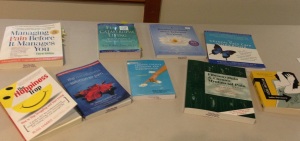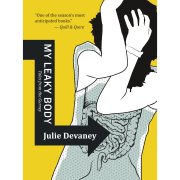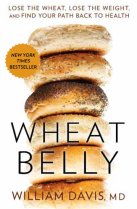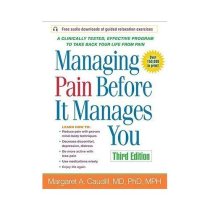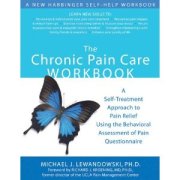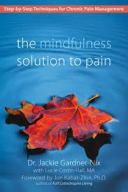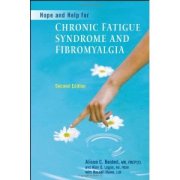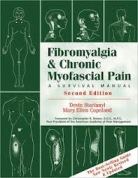This month we brought in books which have proved useful in managing our chronic pain. Some of these books are specific to our condition. Others have proved helpful in dealing with the lifestyle changes we have been forced to make.
My Leaky Body
by Julie Devany
Julie Devaney takes us on a journey through the health care system as she is diagnosed and treated for ulcerative colitis. In and out of emergency rooms in Vancouver and Toronto, she is poked, prodded, and abandoned to a closet at one point, bearing the helplessness and indignities of a system that seems hell-bent on victimizing the sick. Raw, harrowing, and darkly funny, My Leaky Body argues convincingly for fixes to the system and better training for all medical personnel. As she recovers, she sets out to do just that: setting up a gurney on stage at workshops and conferences across the country to teach Bedside Manners 101 and to advocate for repairs to the system. Part memoir, part love story, part revolutionary manifesto, My Leaky Body is politically astute, gooey like cake batter, and raw like ulcerated bowels. Devaney writes the book that will heal her aching heart and relax her strictured rectum as she weaves stories from professional and public interactions with tales from her gurney.
The Happiness Trap
How to Stop Struggling and Start Living
by Dr. Russ Harris
The Happiness Trap debunks the idea that we are meant to always be happy and if we are not, then something is wrong with us. This trap implies that we should be able to control our feelings at all times, and we must get rid of negative feelings in order to be happy. In our attempts to control the reality of our feelings, we fall into a vicious circle of feeling bad about ourselves, trying to change these feelings, being unsuccessful and then feeling worse. This book provides simple mindfulness techniques, using Acceptance and Commitment Therapy to reduce stress, overcome fear and create a meaningful life.
The six core principles of ACT are diffusion of painful and unpleasant thoughts, acceptance of these thoughts, connection with the present moment, development of the observing self, identification of core values and committed action. Each of these principles is explained in simple language, and exercises are provided to practise these tools.
Our chronic pain conditions have forced unwanted change in our lives. In order to regain a meaningful life, we need to make more changes. We can use ACT to reconnect with our own personal values to find what is most important to us and to provide a direction for that change.
Wheat Belly
by Dr. William Davis
This book is a provocative look at how eliminating wheat from our diet can offer relief from a broad spectrum of health and digestive problems, as well as provide permanent weight loss. According to Dr. Davis, the author, a wheat- free diet can alleviate such ailments as metabolic syndrome, type 2 diabetes, ulcerative colitis and celiac disease. The book also states that this diet can also reduce inflammation and arthritis pain.
Managing Pain Before It Manages You
by Dr. Margaret A. Caudhill
This workbook has been recommended by Pain BC and by many chronic pain physicians. Written by a chronic pain doctor, it is a clinically-tested program that you can follow to learn coping skills to reduce your pain and regain control of your life.
The Chronic Pain Care Workbook
by Michael J. Lewdankowski, PhD
This workbook is written by the psychologist who co-developed the Behavioural Assessment of Pain questionnaire which is used around the world by chronic pain physicians. This questionnaire is the basis of the workbook which provides self- management tools for the chronic pain patient.
Full Catastrophe Living
by Jon Kabat-Zinn, PhD
Another book recommended by Pain BC, Full Catastrophe Living, uses Dr. Kabat-Zinn’s mindfulness-based stress reduction program to help the reader deal with the stress of illness and everyday living.
The following two books utilize Dr. Kabat-Zinn’s work:
A Mindfulness-Based Stress Reduction Workbook
by Bob Stahl, PhD and Elisha Goldstein, PhD
The Mindfulness Solution to Pain
by Dr. Jackie Gardner-Nix
Hope and Help for Chronic Fatigue Syndrome and Fibromyalgia
by Dr. Alison Bested, Dr. Alan Logan and Russell Howe, LLB.
This book is designed to educate CFS and FMS patients and provide tools to help them cope with their disease. Written by a Canadian hematological pathologist, a naturopathic physician and an attorney specializing in medical disability cases, this book is the patient’s complementary counterpart to the Canadian Consensus Guidelines for CFS and FMS.
Fibromyalgia & Chronic Myofascial Pain
A Survival Guide
by Dr. Devin Starlanyl and Mary Ellen Copeland
Written by a doctor and a patient who both have these conditions, this book provides practical tools to help patients cope with the pain, sleep problems and “fibrofog” that occur as a result.

